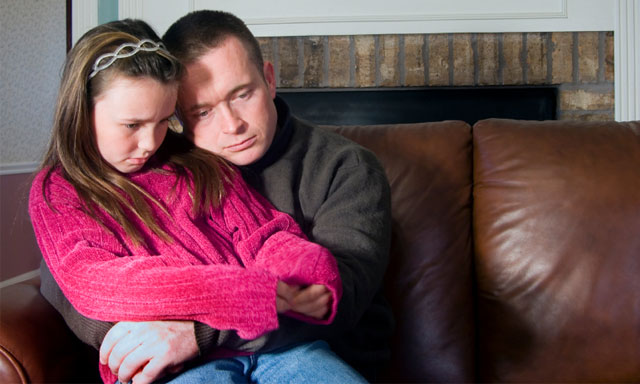Is Daycare Harmful? A Psychologist's Claims And The Expert Response

Table of Contents
Psychologist's Claims Regarding Daycare Harm
Some psychologists have voiced concerns about the potential negative impacts of daycare on children's development. Let's examine these claims, considering both sides of the argument.
Attachment Issues and Daycare
A common concern is that daycare attendance might negatively impact attachment security and parent-child bonding. Some psychologists claim that spending extensive time away from primary caregivers can lead to insecure attachment styles, potentially affecting the child's emotional and social development later in life.
- Specific Claims: Some studies (though often with methodological limitations) suggest a correlation between extensive daycare attendance and increased rates of insecure attachment, particularly the avoidant attachment style. These studies often focus on specific daycare environments or lack control groups with similar parenting styles.
- Counterpoint: The overwhelming consensus among developmental psychologists is that the quality of parenting and the quality of daycare are far more significant factors than simply the presence or absence of daycare. A warm, responsive parenting style can buffer against potential negative effects, while poor-quality daycare can negatively affect children regardless of their home environment. Secure attachment is primarily determined by the consistent, sensitive, and responsive caregiving provided by the parent or primary caregiver, not solely by daycare attendance.
Increased Risk of Illness in Daycare
Another concern revolves around the increased exposure to germs and illnesses in group childcare settings. Children in daycare are undeniably more likely to encounter contagious illnesses.
- Increased Likelihood of Infection: Daycare centers, by their nature, involve close contact between many children, leading to a higher chance of spreading illnesses like colds, flu, and gastrointestinal infections compared to home-based care.
- Counterpoint: While the risk of illness is higher, most daycare-related illnesses are relatively minor and short-lived. Furthermore, exposure to a variety of germs in early childhood can actually contribute to building a stronger immune system. Good hygiene practices within the daycare, along with preventative measures such as vaccinations, significantly minimize risks.
Cognitive and Social Development Concerns
Some critics express concerns that daycare might negatively impact cognitive and social-emotional development. These claims, however, often lack robust empirical support.
- Claims of Developmental Delays: While some studies have explored potential correlations between daycare attendance and certain developmental outcomes, the results have been inconsistent and often confounded by factors like socioeconomic status and parenting styles. Claims of widespread developmental delays linked solely to daycare are unsubstantiated.
- Counterpoint: High-quality daycare environments often provide significant benefits for cognitive and social-emotional development. Structured learning activities, interaction with peers, and exposure to diverse stimuli can positively impact language skills, cognitive abilities, and social interaction. The quality of the childcare provision is paramount.
Expert Response: Debunking Myths and Highlighting Benefits of Quality Daycare
Concerns about daycare harm often stem from a failure to distinguish between poor-quality and high-quality childcare. Let's address the positive aspects of quality daycare.
The Importance of Quality Daycare
The key to mitigating potential risks and maximizing benefits is choosing high-quality childcare. This involves several crucial factors:
- Key Characteristics of High-Quality Daycare: Low child-to-staff ratios, highly qualified and well-trained caregivers, a stimulating and age-appropriate learning environment, a safe and secure facility, and a developmentally appropriate curriculum are all crucial indicators of quality. Accreditation and licensing are also important benchmarks.
Positive Impacts on Social and Emotional Development
High-quality daycare offers unparalleled opportunities for social-emotional growth:
- Social Skills Development: Daycare provides a natural environment for children to learn and practice crucial social skills, including sharing, cooperation, conflict resolution, and empathy through peer interaction. They learn to negotiate, compromise, and manage their emotions within a structured setting.
Cognitive Benefits of Early Childhood Education and Care
Early childhood education and care in a high-quality daycare setting can significantly contribute to cognitive development:
- Enhanced Cognitive Skills: Structured learning activities, exposure to books and language-rich environments, and interaction with educators and peers promote early literacy and numeracy skills, as well as broader cognitive development and enhanced problem-solving abilities.
Conclusion
While some concerns about daycare exist, the vast majority of research points towards the significant benefits of high-quality daycare for children's development. The key takeaway is that the quality of the daycare environment plays a much more critical role than simply whether or not a child attends daycare. Concerns about daycare harm should be balanced against the potential benefits of enriching social and cognitive development, when selecting a high-quality childcare provider. Find the right daycare for your child; ensure your daycare choice promotes healthy development and don't let myths about daycare harm cloud your judgment. Research your options carefully, prioritizing quality and safety above all else, and consult with childcare professionals to determine the best choice for your family's unique needs.

Featured Posts
-
 One Crypto Winner Amidst The Trade War Chaos
May 09, 2025
One Crypto Winner Amidst The Trade War Chaos
May 09, 2025 -
 Bitcoin Madenciliginin Gelecegi Azalan Karlilik Ve Yeni Stratejiler
May 09, 2025
Bitcoin Madenciliginin Gelecegi Azalan Karlilik Ve Yeni Stratejiler
May 09, 2025 -
 Les Mis Cast May Boycott Trumps Kennedy Center Performance
May 09, 2025
Les Mis Cast May Boycott Trumps Kennedy Center Performance
May 09, 2025 -
 Credit Suisse Whistleblower Case A 150 Million Settlement
May 09, 2025
Credit Suisse Whistleblower Case A 150 Million Settlement
May 09, 2025 -
 Nepredskazuemye Snegopady V Mae Problemy Meteorologicheskikh Prognozov
May 09, 2025
Nepredskazuemye Snegopady V Mae Problemy Meteorologicheskikh Prognozov
May 09, 2025
Latest Posts
-
 194 Billion In Losses The Impact Of Trump Inauguration Donations On Tech Billionaires
May 09, 2025
194 Billion In Losses The Impact Of Trump Inauguration Donations On Tech Billionaires
May 09, 2025 -
 Kimbal Musk Beyond Elons Shadow A Profile Of A Successful Entrepreneur
May 09, 2025
Kimbal Musk Beyond Elons Shadow A Profile Of A Successful Entrepreneur
May 09, 2025 -
 Trump Inauguration Donors Tech Billionaires Steep 194 Billion Losses
May 09, 2025
Trump Inauguration Donors Tech Billionaires Steep 194 Billion Losses
May 09, 2025 -
 Elon Musks Brother Kimbal Musk Philanthropy Restaurants And Political Activism
May 09, 2025
Elon Musks Brother Kimbal Musk Philanthropy Restaurants And Political Activism
May 09, 2025 -
 Kimbal Musk A Look Into The Life And Career Of Elon Musks Brother
May 09, 2025
Kimbal Musk A Look Into The Life And Career Of Elon Musks Brother
May 09, 2025
